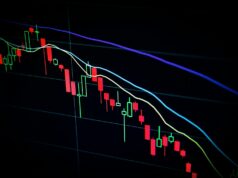In the vast, ever-shifting landscape of digital currencies, where fortunes can be made or lost in the blink of an eye, understanding the nuances of gas fees emerges as a pivotal concern for those seeking to navigate this complex terrain. These transaction fees, often perceived as mere costs associated with moving assets from one wallet to another, hold a deeper significance. They are not merely charges but rather a reflection of the underlying mechanics that govern the blockchain ecosystem. Comprehending these fees is essential for anyone wishing to optimize their income in a world where every penny counts.
The role of gas fees extends beyond the transactional realm; they play a critical part in determining your overall earnings. In analyzing the impact of these charges, one must grasp how fluctuations in gas costs can influence not only the timing of transactions but also the profitability of investments. Each transaction carries with it an inherent cost, a fee that can dramatically affect one’s bottom line. As we delve into this topic, it becomes clear that understanding gas fees is not just an academic exercise; it is a vital skill for any serious investor in cryptocurrencies.
Through careful examination and thoughtful contemplation, we will explore how these gas costs shape our strategies and decisions within the crypto market. By dissecting the intricacies of transaction fees, we aim to uncover their true effect on our earnings and ultimately empower you to make informed choices. Grasping the dynamics at play will allow you to navigate this bustling marketplace with greater confidence, ensuring that your income is maximized amidst the tumultuous ebb and flow of digital currency trading.
Understanding Gas Fees in Crypto
In the vast landscape of cryptocurrency, where fortunes are made and lost with the flicker of a screen, grasping the intricacies of gas fees becomes essential for anyone wishing to navigate this tumultuous terrain. These costs, often overlooked by the eager investor, play a pivotal role in determining the true potential of one’s earnings. The gas fees, or transaction charges, serve as the lifeblood of blockchain operations, ensuring that transactions flow smoothly through the intricate web of decentralized networks. Without a deep comprehension of these fees, one risks sailing into uncharted waters without a compass.
Analyzing the nature of gas costs reveals a complex interplay between demand and supply within the blockchain ecosystem. Each transaction requires computational power to be validated and recorded, and this power comes at a price. As more individuals engage in trading and transferring assets, the demand for these computational resources surges, leading to rising gas charges. Thus, understanding how these fees fluctuate with market dynamics can significantly influence one’s approach to trading strategies and timing, ultimately affecting profits.
The impact of gas fees on income cannot be overstated. For those looking to maximize their returns, every transaction must be weighed against the associated costs. High gas fees can erode potential profits, transforming what seems like a lucrative trade into a mere exercise in futility. Therefore, it is imperative for investors to remain vigilant, constantly monitoring not only the market trends but also the prevailing gas charges that accompany their transactions. This delicate balance between cost and benefit is crucial for sustaining long-term profitability in an environment rife with volatility.
Moreover, understanding the role of gas fees extends beyond mere numbers; it is about grasping their significance within the broader context of blockchain technology. These fees serve as incentives for miners and validators who uphold the network’s integrity. By compensating them for their contributions, users indirectly ensure that their transactions are prioritized and executed efficiently. A thoughtful approach to managing these fees can lead to enhanced transaction speeds and reliability, further solidifying one’s position in this fast-paced arena.
In conclusion, comprehending gas fees is not just an academic exercise; it is a fundamental aspect of thriving in the cryptocurrency world. The influence of these charges on transaction efficiency and profitability underscores their importance in any financial strategy. By diligently analyzing gas costs and their implications on earnings, investors can navigate this evolving landscape with confidence, turning potential pitfalls into stepping stones toward greater success.
Understanding Gas Fees and Their Impact on Your Earnings
In the sprawling landscape of cryptocurrency, where fortunes are made and lost in the blink of an eye, gas fees emerge as a silent yet formidable force influencing your income. These charges, often overlooked by the untrained eye, serve as the lifeblood of blockchain transactions. As one delves into the world of digital finance, grasping the intricacies of these fees becomes paramount. They are not merely costs to be endured; rather, they play a pivotal role in shaping your overall financial experience.
Analyzing the nature of gas fees reveals their dual character–both as a facilitator and a hindrance. On one hand, they ensure that transactions are processed swiftly and securely, propelling the wheels of decentralized networks. On the other, they can impose significant burdens on your profits if not understood properly. The ebb and flow of these costs fluctuate with network demand, revealing a dynamic relationship that can either bolster or undermine your earnings. Thus, comprehending this delicate balance is essential for anyone navigating the volatile waters of cryptocurrencies.
As you venture further into the realm of digital assets, it becomes increasingly clear that these gas charges are not mere abstractions but tangible influences on your financial landscape. Each transaction carries with it an inherent cost that can whittle away at potential profits if left unchecked. By understanding how these fees operate within the ecosystem, you can make informed decisions that enhance your income while minimizing unnecessary expenditures. This awareness transforms gas fees from a source of confusion into a tool for strategic financial planning.
Ultimately, recognizing the effect of gas costs on your earnings is crucial for sustainable success in cryptocurrency investments. Just as a farmer tends to his crops with care and foresight, so too must you cultivate an understanding of how these charges impact your bottom line. With each transaction, every fee represents a choice–a decision that echoes through your financial journey. In this intricate dance between income and expenses, let knowledge be your guide, illuminating the path toward greater profitability in an ever-evolving market.
Understanding Gas Fees and Their Impact on Your Earnings
In the vast expanse of the digital economy, where transactions flicker like fireflies in the night, gas fees emerge as a subtle yet powerful force shaping your earnings. These charges, often overlooked in the fervor of buying and selling, play a critical role in determining the net income that flows into your wallet. As we delve deeper into this intricate web of costs and profits, it becomes essential to grasp how these fees influence not only individual transactions but also the broader landscape of cryptocurrency trading.
Comprehending gas costs is akin to understanding the rhythms of nature; each transaction requires a certain amount of energy to push through the network. This energy comes at a price, affecting how much you ultimately earn. By analyzing these fees, one can begin to see patterns that emerge during periods of high demand or network congestion. The ebb and flow of gas charges reflect the sentiments of traders, rising sharply when interest surges and plummeting when the market cools. Each fluctuation serves as a reminder that every action in this space carries an inherent cost, one that directly impacts your income.
As we navigate through these financial waters, recognizing the effect of gas fees on your earnings becomes paramount. A seemingly trivial charge can erode profits significantly, especially for those engaged in frequent trading activities. Understanding this dynamic helps individuals make informed decisions about when to buy or sell, allowing them to optimize their strategies and minimize unnecessary expenses. Thus, comprehending gas fees is not merely an academic exercise; it is an essential skill for anyone seeking success in this volatile arena.
Moreover, the influence of transaction fees stretches beyond immediate gains and losses. They shape investor behavior and market trends, creating ripples that extend throughout the community. A trader who meticulously calculates gas charges into their profit margins is likely to approach their investments with greater care and foresight. In this sense, gas fees serve as both a challenge and an opportunity – an obstacle to be navigated with skillful precision and a catalyst for improved financial acumen.
In our quest for understanding, we must also consider the broader implications of gas charges on long-term strategies. For those who envision holding assets over an extended period, these costs can accumulate quietly in the background, subtly chipping away at overall profits. An astute investor will recognize that while short-term volatility might tempt them to act hastily, patience coupled with a clear understanding of gas fees can yield more fruitful outcomes.
Ultimately, as we stand at the intersection of technology and finance, it becomes increasingly vital to appreciate the intricate dance between gas fees and earnings. By grasping this relationship, individuals are better equipped to navigate the complexities of cryptocurrency trading. With a warm heart and keen analytical mind, one can transform challenges into opportunities for growth and success in this ever-evolving landscape.
Conclusion: Understanding Gas Fees and Their Impact on Your Earnings
In the intricate world of cryptocurrency, where transactions flow like rivers across an expansive landscape, the nuances of gas fees emerge as both a challenge and an opportunity. Grasping the intricacies of these charges is not merely a matter of cost; it is about understanding how they influence your income and earnings in this digital frontier. As we have delved into the strategies to reduce gas costs, it becomes evident that these fees play a pivotal role in shaping your financial outcomes.
Through careful analyzing of gas charges and their effect on your earnings, one can begin to comprehend the delicate balance between transaction efficiency and cost-effectiveness. The journey through this complex terrain demands not just knowledge but also a strategic mindset–a commitment to making informed decisions that can enhance your income while navigating the sometimes turbulent waters of gas fees.
- Comprehending Gas Costs: Understanding the nature of gas fees is essential for optimizing your transactions.
- Impact on Income: Recognizing how these charges affect your overall earnings allows for better financial planning.
- Strategies to Reduce Costs: Implementing effective strategies can lead to significant savings over time.
- An Ongoing Journey: The landscape of gas fees is ever-evolving; staying informed is crucial for sustained success.
In conclusion, embracing the complexities of gas fees with an analytical perspective fosters not only comprehension but empowerment in your financial endeavors. As you navigate this landscape, let knowledge be your compass, guiding you towards greater profitability and success in the world of cryptocurrency.














